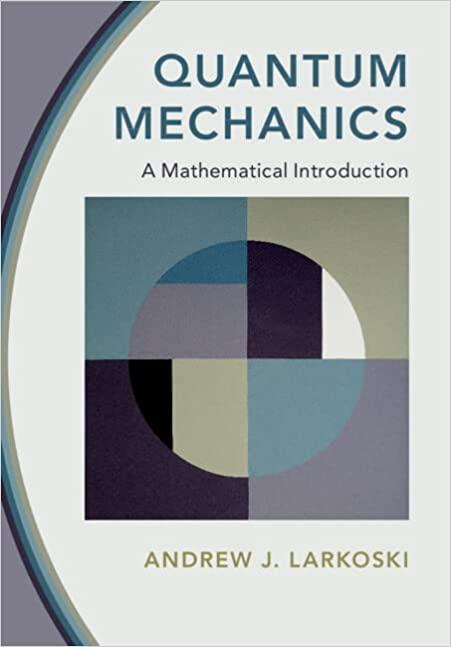The Heisenberg uncertainty principle establishes a robust lower bound on the product of variances of Hermitian operators,
Question:
The Heisenberg uncertainty principle establishes a robust lower bound on the product of variances of Hermitian operators, which depends on their commutator. We established this bound for any arbitrary, normalizable state \(|\psiangle\); however, can we determine the state (or states) for which the Heisenberg uncertainty principle is saturated? That is, on what state do we have the equality
\[\begin{equation*}\sigma_{x} \sigma_{p}=\frac{\hbar}{2} ? \tag{4.162}\end{equation*}\]
(a) In our derivation of the uncertainty principle, we exploited the CauchySchwarz inequality at an early stage. In particular, Cauchy-Schwarz implies that
\[\begin{equation*}\left\langle(\hat{x}-\langle\hat{x}angle)^{2}\rightangle\left\langle(\hat{p}-\langle\hat{p}angle)^{2}\rightangle \geq|\langle(\hat{x}-\langle\hat{x}angle)(\hat{p}\langle\hat{p}angle)angle|^{2}, \tag{4.163}\end{equation*}\]
where all expectation values are taken on some state \(|\psiangle\). Argue that if this inequality is saturated and becomes an equality, then
\[\begin{equation*}(\hat{x}-\langle\hat{x}angle)|\psiangle=-\frac{2 i \sigma_{x}^{2}}{\hbar}(\hat{p}-\langle\hat{p}angle)|\psiangle \tag{4.164}\end{equation*}\]
Don't forget to use the saturated uncertainty principle, too.
(b) Now, express the relationship in Eq. (4.164) as a differential equation for the wavefunction \(\psi(x)=\langle x \mid \psiangle\) in position space. Solve the differential equation for \(\psi(x)\) for general \(\langle\hat{x}angle\) and \(\langle\hat{p}angle\). Don't worry about an overall normalization.
(c) Now, Fourier transform \(\psi(x)\) to momentum space. How does the functional form of its Fourier transform compare to that of \(\psi(x)\) in position space?
Step by Step Answer:

Quantum Mechanics A Mathematical Introduction
ISBN: 9781009100502
1st Edition
Authors: Andrew J. Larkoski





